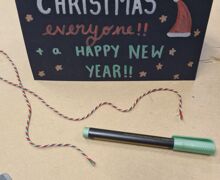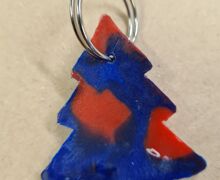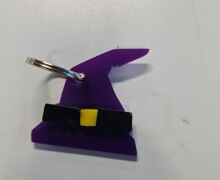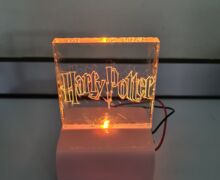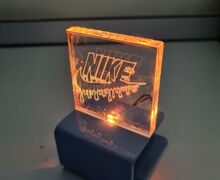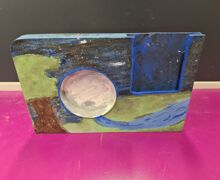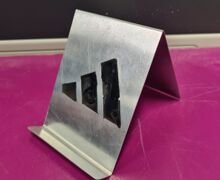| Examination Level: |
GCSE |
| Examination Group: |
EDEXCEL |
| Examination Value: |
50% |
| Examination Structure: |
1hr 45mins paper |
| Coursework: |
50% |
Assessment Requirements:
Component 1 - Written paper – 100 marks - 50%
|
Section A
Core content (40 marks)
|
Section B
Specialist materials category (60 marks)
|
This section contains a mixture of different question styles, including open-response, graphical, calculation and extended-open-response questions. There will be 15 marks of calculation questions in component 1.
Students Study:
Students may only choose one design and technology specialist materials category from the following list:
- Design and technology – Graphics
- Design and technology – Resistant materials
Component 2 – Coursework - 100 marks - 50%
Students will undertake a project based on a contextual challenge released by Edexcel on the 1st of June, a year before certification. The project will test students’ skills in investigating, designing, making and evaluating a prototype of a product. Tasks will be internally assessed and externally moderated. The marks are awarded for each part as follows.
- Investigate (16 marks)
- Design (42 marks)
- Make (36 marks)
- Evaluate (6 marks)
At the end of the course all students will gain a GCSE in design & technology but, although they will have followed different subject specific pathways, these will not be named specifically on the final qualification. The GCSE design & technology qualification will operate on a level 9–1 awarding.
The tasks for 2023-24 academic year were:
Theme 1 Charities Contextual challenges:
(a) How can products be used to raise money for a charity?
(b) How can products be used to promote awareness of a charity?
Theme 2 Religious Celebrations Contextual challenges:
(a) How can products be used to educate people about a religious festival?
(b) How can products be used to commemorate a religious event?
Theme 3 STEM (Science, Technology, Engineering and Maths) Contextual challenges:
(a) How can products be used to encourage participation by students in STEM activities or clubs at school?
(b) How can products be used to celebrate and recognise achievement in STEM activities?
Congratulations to the Year 11 students on achieving
48% grades 9-4 in Design & Technology
86% grades 9-4 in Graphics
90% grades 9-4 in Electronics
Congratulations to the Year 11 students on achieving
62% grades 9-4 in Design & Technology
70% grades 9-4 in Graphics
89% grades 9-4 in Electronics
Technological skills are in high demand. It is an area of skills shortage and employment is high with excellent career prospects.
A technology qualification is highly beneficial in a wide range of careers. With technology increasingly influencing our lives, an understanding of technology is useful in many fields of employment. Beyond this there are a wide number of options from degree studies through to basic vocational levels in a wide range of industries. At degree level, study in technology may follow a design route, science route or technical route although technology subjects are not valued simply for their development of practical skills related to particular industries but also for their emphasis on creative thinking, research, testing solutions, project management and working as part of a team.
If you have any questions to ask about this course, Miss Langshaw will be pleased to discuss them with you.

